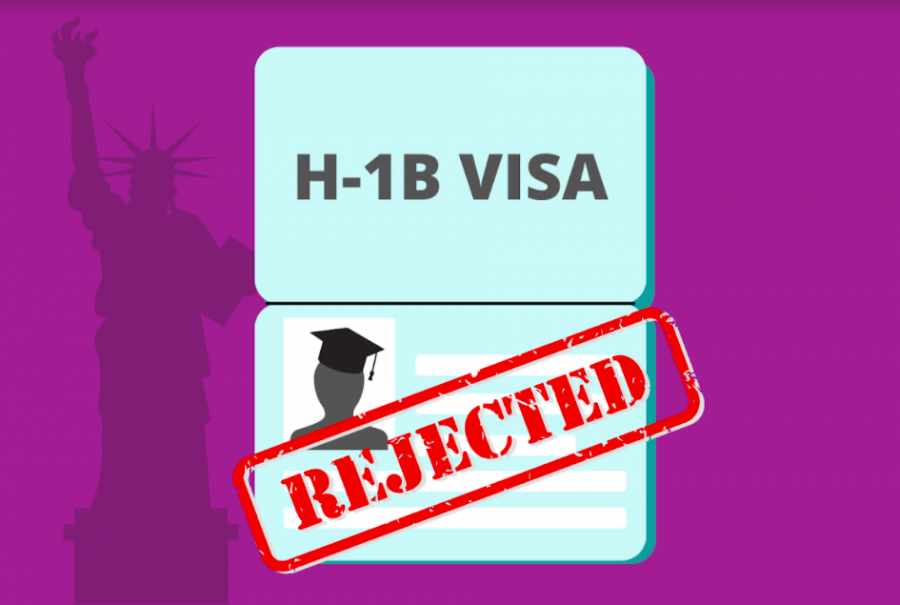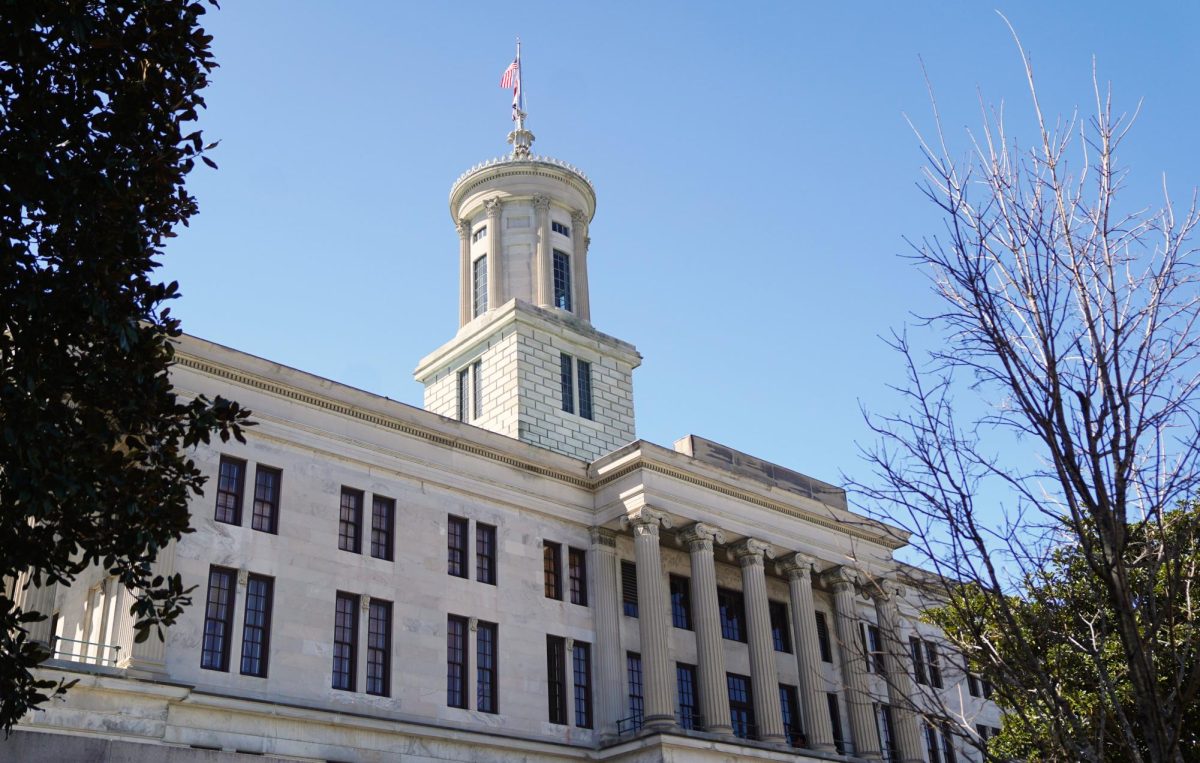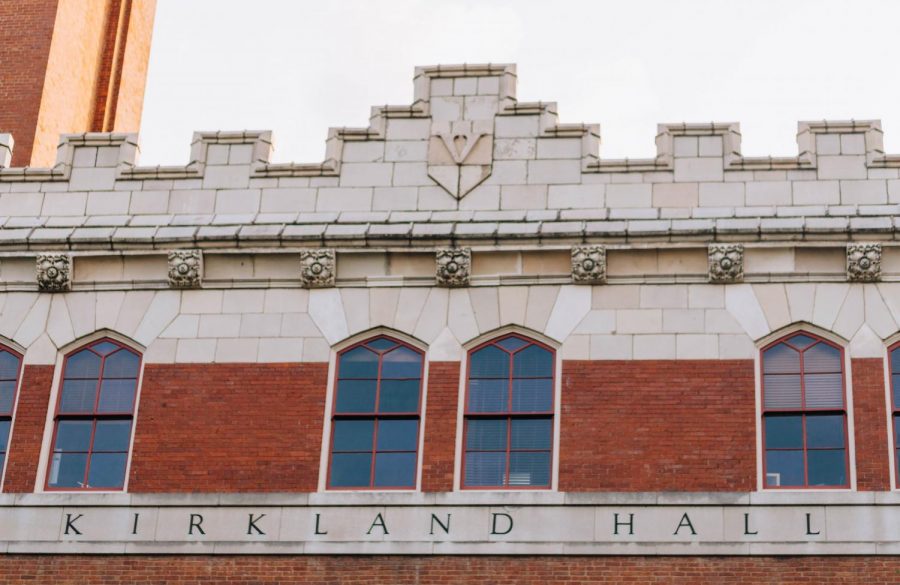For international students like myself, getting a nice job is one thing, being employable is another. Too often, the much-dreaded line “sorry, but we cannot sponsor H-1B visas” sneaks up in Linked-In job descriptions, career fair conversations and that final round of job interviews that you thought went so well.
The H-1B is a work visa that foreigners must obtain in order to legally work in the U.S. Since the annual cap of the H-1B falls short of demand, it is previously assigned via a random lottery system, and an especially risky one: last year, out of the 275,000 petitions filed, only 85,000 were granted. Two-thirds of foreign workers have to wait until next year to test their fates.
Yet, the lives of international students and all foreigners seeking jobs in the U.S. have been made more difficult. On Jan. 8, the Department of Homeland Security (DHS) published a new rule, originated under the Trump administration, that replaces the random lottery assignment of H-1B with one that prioritizes applicants receiving higher wages.
The DHS claims that the new H-1B policy is a definite win-win: for U.S. stakeholders, the policy would attract the “most-skilled” and “most-valued” H-1B recipients and opens up more lower-level job positions for domestic employees. For foreign workers, the policy would eliminate the uncertainty of the previously random lottery and “incentivize employers to offer high wages” to highly skilled employees.
Moreover, the DHS is confident that the new rule conforms to a fair principle that “distinguishes merit and ability,” creating a merit-based ideal that drives American immigration policy.
Yet, the new H-1B policy got it wrong: it is far from a win-win.
It’s a definitive loss for the 1,000,000 international students graduating each year with a bachelor’s degree from higher education institutions. Under the new rule, all entry-level jobs—those paying less than $80,205 a year—will not be eligible for the H-1B lottery. Let’s compare this to the average first-year salary received by Vanderbilt alumni with a bachelor’s degree: $62,000. So, an average international student at Vanderbilt has no hope of entering the job market after graduation, but graduating from Vanderbilt—a prestigious institution—already places us above thousands of others: the national average is $50,000, hopelessly short of the H-1B requirement.
The result of the drastic mismatch is not reduced uncertainty or higher wages. It does, as the executive director of the national foundation for American policy Stuart Anderson laments, make “international students too expensive to hire.”
The new rule is also a loss for many U.S. industries that depend on H-1B workers. Consider the contribution of H-1B workers during this pandemic. Eight pharmaceutical companies are currently employing 3,310 biochemists, biophysicists, chemists and other H-1B workers to develop the COVID-19 vaccine. Yet, they would have been denied H-1B if the new rule were adopted at the time they graduated. The new rule dries up the supply of life-saving talents in the near future.
Meanwhile, no evidence supports the DHS’s assertion that H-1B employees are replacing U.S. workers. What is found by researchers is that each H-1B application sponsored by a large tech company is associated with an increase of 67 employees overall. No evidence supports the DHS’s claim that low-paying H-1B jobs drives down wages. What is statistically evident is that the average H-1B wage is four percent higher than the average American’s. The image of cheap foreign workers who flood out U.S. jobs painted by the DHS is simply false. Instead, they meet the needs of U.S. society, especially in times of national emergencies.
However, the new rule is not only ignorant of facts and misguided in its estimates of practical implications; it is also woefully misaligned with its appeal to meritocratic ideals. In fact, the new rule is anything but meritocratic. Center to the DHS’s justification for passing the new rule is an assumption that wage equates to value. Yet, we all know that wage is never a reflection of merits alone: for a large part, it measures how many years one has worked in the industry. So, we must not fail to distinguish talent from experience, just as we cannot deem a doctor-to-be in a medical residency program less valuable than a senior financial consultant. All senior-level employees started out doing lower-level jobs. It’s the natural way a career progresses. But, the DHS is rejecting entry-level H-1B applicants today and hoping that they miraculously become the “best and brightest” talent that benefits the U.S. society without access to entry-level positions.
Now which part of the new rule aspires to the true meritocratic ideal, instead of a nativist, short-sighted calculation?
The H-1B lottery system has already been delaying the dreams of international students at Vanderbilt and all higher education institutions throughout the States. The new policy is only turning uncertainties into impossibilities. The struggle is heart-felt daily by the talented international students in our Vanderbilt community. Kevin Zhang, a rising senior and computer science and political science double major, recounts his experience spending weeks networking and interviewing, only to be informed on the spot during his final interview that the company he was applying to work for does not sponsor H-1B visas. Others had to make the difficult decision to delay their entrance into the workforce. Christine Zhou, another rising senior studying computer science and math, has to give up her plan of diving directly into the tech industry to pursue higher degrees to boost her H-1B chances. Passionate, innovative and talented students are seeing their dreams rejected and delayed, not due to their lack of merit, but solely because of their identity and status of residence.
The new H-1B policy speaks the language of exclusion and nativism. To say that it aspires to the meritocratic ideal is an insult to meritocracy. Accepting the new H-1B rule is the same as consenting to a value system in which wage determines merit, hence blindfolding ourselves from true talent and ingenuity.





jake_leone • May 25, 2021 at 3:21 pm CDT
I have to tell, I have no reason what-so-ever to favor the change from a random chance lottery allocation of H-1b to an allocation that is based upon salary.
I don’t have a computer science degree, or really any degree. Yet I have been working as a programmer for 30 years. And we have to ask, why is that?
Most computer science work involves routine programming and trivial finite math and algebra. The stuff I learned at Kennedy junior highschool, in Redwood City, CA. It isn’t even a step above what you have to know in order to do skilled machining, which I did for 12 years, before finding work as a programmer.
What has been of great benefit is that I am in a computer science job. That allows me the time to study more advanced topics in AI, business data administration, stuff like that. If I wasn’t in a computer science job, I would be studying whatever is needed for that job.
While I don’t do AI as part of my job, my company actually creates a tool that is used extensively in AI labs, by the government, and by corporations, to actually do AI projects (your tool also does ETL, data-warehousing, data cleansing…). So it is necessary that I understand the tooling requirements of groups that are doing AI, applied and research work.
I have a lot of domain expertise. But if we changed to a salary based allocation of the H-1b visas, my company might be inclined to offer H-1b workers the kind of salaries that would attract other people with my kind of domain expertise.
But with the lottery for H-1b visas. Well my company literally only has a 1-in-4 chance of winning an H-1b visa. And with the low salaries, my company is motivated to bring in the freshers and the college grads in on the H-1b visa. So what happens is that OPT workers never (rarely) win an H-1b visa and the freshers get their training and move on to other jobs at other companies that are willing to pay them more.
So by all means, keep the random chance lottery. Keep letting half the H-1b visas go to Offshore Outsourcing companies. Such outsourcing companies are actually looking to replace workers at the well scripted positions of accounting, HR, db administration… My job is just too specialized, you can’t find a replacement for me for less than 200k a year, anywhere on Earth.
jake_leone • May 25, 2021 at 5:49 am CDT
OPT is a great program, but we should literally expand the OPT tax break to all students (foreign and domestic) and make it an apprenticeship program. We should also, extend the time of OPT for all jobs. And make that time period, if successfully completed, qualification enough for a Green Card.
At the end of an OPT completion, some percentage of student loan debt could also be forgiven. Because the cost would be offset by the ability of the now student turned worker, to earn higher salaries going forward. Since, starting job success is correlated with higher future salary.
This would ensure that Capitalism, not arbitrary rules from the government pick the winners and losers in the market place.
jake_leone • May 25, 2021 at 5:43 am CDT
Salary, is not a perfect proxy for skill, but it is far better than picking H-1b winners by a lottery system (which is using chaos to do your decision work). And literally we are talking about a lottery system that is mostly gamed and won by Offshore Outsourcing companies.
As for evidence that H-1b workers replace Americans. Just ask the Americans that have had to train their H-1b replacements. Often as a prelude to moving entire departments, and all supporting jobs, overseas. Which is actually the entire business model of Offshore Outsourcing companies. Offshore Outsourcing companies, that in some years, actually win more than half the generally available H-1b visas.
We can alleviate the impact of the change to a salary allocation on non-profits, by simply determining the number of H-1b applications that are actually from non-profits. And allocating that percentage of the H-1b visas, to non-profits, using the random chance lottery method.
The change to a salary allocation of H-1b visas would actually affect Offshore Outsourcing companies, because they pay the lowest salaries. Such companies were never in the original intent of the Congress people who first passed the H-1b law. Yet such companies overstuff the H-1b application system, such that Silicon Valley companies trying to get an H-1b for a well vetted worker, have only a 1-in-4 chance of winning an H-1b visa for that worker.
Literally, changing to a salary allocation would cut those chances to 1-in-2 for Silicon Valley companies, the first year. And, non-profits would also have a better chance of getting an H-1b visa (if we also implement the percentage allocation I meantion above). Because Offshore Outsourcing companies would simply not participate in the H-1b program. Instead Offshore Outsourcing companies would use the U.S. Free Labor market, you know Capitalism, and stop using a U.S. government program.
Offshore Outsourcing companies almost never sponsor anyone for a Green Card. So literally, by keeping the random chance lottery system for allocation H-1b visas, we are turning the H-1b into an anti-immigrant program. Switching to a salary based allocation of H-1b visas would double the number of Green Cards issued, and so eventual citizens, simple because Offshore Outsourcing companies would no longer be inclined to over-subscribe the H-1b program.
Who would be hurt by such a program? Immigration attorneys. As immigration attorneys would lose about half of their H-1b application business. But direct hires by Tech companies and Non-profits, would be greatly expanded by such a change. And more people would go on to become citizens. And the latter, rather than the former, is in the best interest of workers (foreign and domestic), companies doing business here in America, the American people, and the overall strength of the U.S. economy.
Ash • Apr 27, 2021 at 6:46 pm CDT
I agree that many students start with an entry level salary in the first year of their OPT. This rule will encourage students to further develop their on the job and command higher salaries in their second and third year of OPT which would enable them to be eligible for an H-1B visa in their second and third year. This rule would also ensure that students on OPT are gaining more practical skills to improve their skill sets. I think the wage based rule is merit based and brings some sort of certainty to the current random lottery and would enable International students to plan their future. If the student is unable to achieve a higher in their second or third year of OPT, they can plan their future and decide to go for further education or move to another country rather than hoping next year for their H-1B to get selected in a completely random lottery.